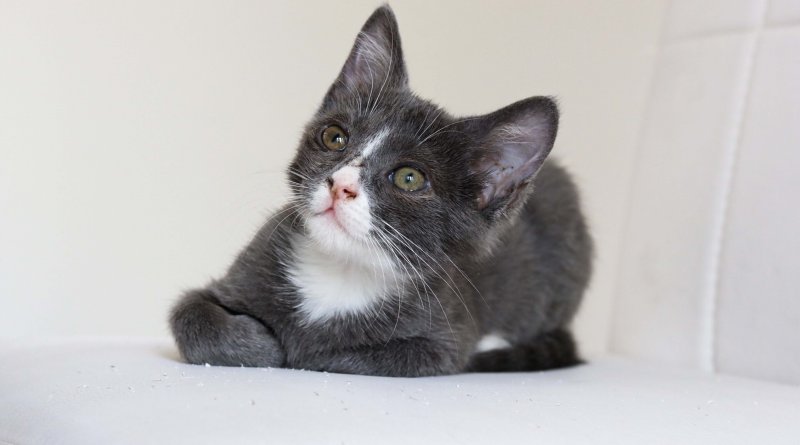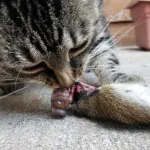Cat Anxiety Solutions: Effective Ways To Calm Down Your Feline Friend
Last Updated on
The views and opinions expressed in this article are those of the guest author and don’t necessarily reflect the beliefs held by Wildernesscat in general. If you need further assistance, please contact your veterinarian or feel free to send us a message for personalized feedback.
Pet owners always assume that cats are self-sufficient. They are thought to be tough and resilient creatures who got zero time for anxiety. But this is not true. Cats get anxious, and it is your job as a pet parent to find ways to stop the problem.
What Makes A Cat Anxious?
What makes a particular cat anxious does not ring true for all cats. As with people, cat anxiety is pretty common. Their primary sources of anxiety are even the same with humans, experiencing triggers from things like slight changes in the environment. Cats become apprehensive when their routine is changed. It does not have to be as drastic as moving to a new house. Simple changes such as a change in your work shift can throw your cat off-balance.
Other causes include traumatic experiences, which are quite typical in cats that were originally from a shelter. Before adopting, be sure to check the background of your chosen cat. Doing so will prevent you from exposing your new feline friend to situations that are unhealthy for her. Some cats that have gone from home to home and lived with different carers are observed to get anxious quickly. Most young kittens that find it hard to socialize also grow up to be anxious adults.
Signs That You Have An Anxious Cat
Watch out for the following signs, so you can stay vigilant when it comes to your pet’s emotional and mental health.
Your cat loves to stay hidden.
Nope. Your cat is not playing hide and seek with you. Some cats experience social awkwardness, but if you rarely see your cat anymore, then something must be up.
Your cat is becoming more aggressive.
If you know your cat to be calm and collected, then stress and anxiety might be pushing her on edge as of late. The truth is pets, in general, will not misbehave all of a sudden without any trigger. There must be an underlying cause that resulted in a shift in attitude and unexpected development of aggression.
Kitty has developed excessive grooming habits.
Cats always clean themselves. Pet owners always appreciate how low maintenance cats are. However, if you notice your cat repeatedly licking herself, then this can be attributed to anxiety and stress. This is especially true if you observed that your cat has been losing her hair from too much grooming.
Your feline friend has the shakes.
No one likes being taken off-guard, so it is reasonable to tremble after getting startled. But if your kitty has regularly been shaking, you need to do something about it. She might be overly anxious. Find out what is causing her constant stimulation.
Your cat is really chatty. Like, really chatty.
Cats are talkers. They meow at their humans more than their fellow felines. If your cat is trying to get you to notice her and you don’t understand why, she is probably trying to tell you what is making her anxious. Take note of the tone of her meows. If she is displaying signs of anxiety, her meows would sound like a cry for help.
She got zero cares to give.
When humans are feeling sluggish, you can easily tell that something is up. The same goes for our kitty companions. Aside from possible health problems, one common reason (if you already confirmed with your vet that your cat is A-okay physically) is anxiety.
Kitty has got so much energy to release.
On the other side of the spectrum, if your cat is behaving like she drank a whole can of Redbull, something is definitely up, aside from her energy level that is. Pets usually spend a good part of their day snoozing off, so if your cat is up and running for more than half the day, her anxiety is probably keeping her wide awake.
Your cat wants to be with you everywhere.
Dogs are clingy. Cats? Not so much. However, both animals can develop anxiety from different things, such as getting separated from their pet parents. Is your cat being extra clingy by following you wherever you go? Then, anxiety might be the cause. Sure, having your little kitty tail you seems touching and sweet, but if this behavior is new and unusual, clinginess can be a sign of anxiety.
If your cat is experiencing the following, what should you do? Well, hate to be the bearer of bad news, but you have to be your cat’s therapist. When your feline friend experiences some physical symptoms, all you need to do is go to the vet. He or she will give you the medications to aid your ailing pet. However, when it comes to managing your cat’s anxiety, medications are just adjuncts. For the most part, you are your pet’s biggest chance of recovering.
Dealing With Your Cat’s Anxiety
Reassuring your stressed and distressed kitty is not that hard. After all, most of these revolve around showcasing some TLC. As cat lovers, of course, this will come easy. Here are some ways you can help your little critter out when she is feeling overwhelmed with emotions.
Consult Your Vet
In this article, you have read about possible triggers that can incite anxiety and feelings of restlessness in your cat. Pinpointing the source can be tricky. With the help of a veterinarian, you can get a treatment plan for your pet. He or she will recommend the proper techniques you should take, in the event that all physical issues have been ruled out.
Try Behavioral Conditioning
Aside from anti-anxiety medications, your vet might ask you to seek out the help of animal behaviorists or trainers. Counter-conditioning includes replacing your cat’s behavior and converting it to a more positive one. In the process, your cat might learn new and positive behaviors.
Stay Consistent
As mentioned earlier, cats appreciate consistency in their lives. Avoid changing up your routines at home. Do not conduct house styling or rearrange furniture constantly because these can cause some disorientation for your feline friend. Give your cat a safe space, which should always remain familiar to her.
Learn About Natural Ways To Deal With Anxiety
Using natural methods can lower your cat’s anxiety level. Look up some herbs or ask your vet what he or she will recommend.
Below are some natural ways to alleviate your little munchkin’s feelings of trepidation.
- Catnip is known to boost cats’ energy level. If your cat is already feeling highly active, most owners will opt out of giving their kitties some. Catnip is not only suitable for cats who are lethargic and lazy. These can actually help your pet in more ways than one. After the elevated levels of energy which usually lasts about 20 minutes or so, your cat would wind down and become relaxed and calm. Organic catnip is your best bet.
- Valerian is better than catnip when it comes to removing your cat’s stress. Even us humans acknowledge the relaxing effects of valerian as it helps counter insomnia. Valerian makes your cat fall
 asleep right away, even faster than catnip.
asleep right away, even faster than catnip. - Chamomile is a perfect bedtime drink, but are you aware that it can help solve cat anxiety? Check your pantry if you have some, so you can immediately give a remedy to your cat.
- Some pet parents are hesitant to try flower tinctures because they are new to the market. Aside from the heavenly scent these tinctures have, your cat will appreciate that she does not have to ingest it to experience its healing effects.
- Hemp oil or CBD oil can get rid of your cat’s anxiety for good. It does more than provide relief from body pains as it can improve your cat’s quality of life and comfort level. Organic products, such as Restorapet Hemp, are guaranteed safe and effective in eradicating pain and anxiety while boosting your pet’s cellular level. Learn more about how it can help your pet here.
Music Therapy
Apparently, it is not only humans who find soft music soothing. Our beloved pets also calm down at the sound of classical music. Download cat-specific playlists to alleviate kitty’s anxiety and stress.
Get To Know Your Cat
It is crucial to become acquainted with your cat to identify what she needs. These animals are great pets to have. Take care of your pet’s mental health just as you would take care of yours.
Distract Your Cat
Divert your cat’s attention by stimulating her mind. If your cat has separation anxiety, do something to alter her state of mind. Try to install cat perches where your cat can sit and relax to enjoy some beautiful views. Buy some toys to keep her busy. Puzzle feeders are a great choice to keep your feline friend entertained.
Increase Quality Time
The best medication is giving your pet a dose of tender loving care. Invest some time to do the activities your cat loves. Cats enjoy spending quality time with their humans. Simple things, such as keeping them close when watching TV, can mean a lot to our furry kitties. But, if you really want to level up your bonding moments together, then traveling with your beloved cat will do the trick.
If You Ignore The Symptoms…
Unfortunately, anxiety will not recover by itself. It is most likely to worsen in time. Don’t put your cat in a dangerous situation. Chronic stress and anxiety can damage your cat’s physiological state. Eventually, it can hurt her immune system. When this happens, your cat will be more susceptible to diseases, which will further elicit more stress. If the cycle continues, more emotional, mental, and physiological problems, such as depression might develop.
Final Thoughts
Take heed of your cat’s anxiety problem. By placing her in an environment full of love and support, your four-legged best friend will fully recover and become her usual happy self in no time.
About the Author:
Brian Larsen is the Co-Founder and CEO of RejuvaPet, LLC — the creator of RestoraPet and RestoraPet Hemp. He spent nearly 10 years developing these products to rehabilitate and protect pets at the cellular level, for a vastly improved quality of life.









